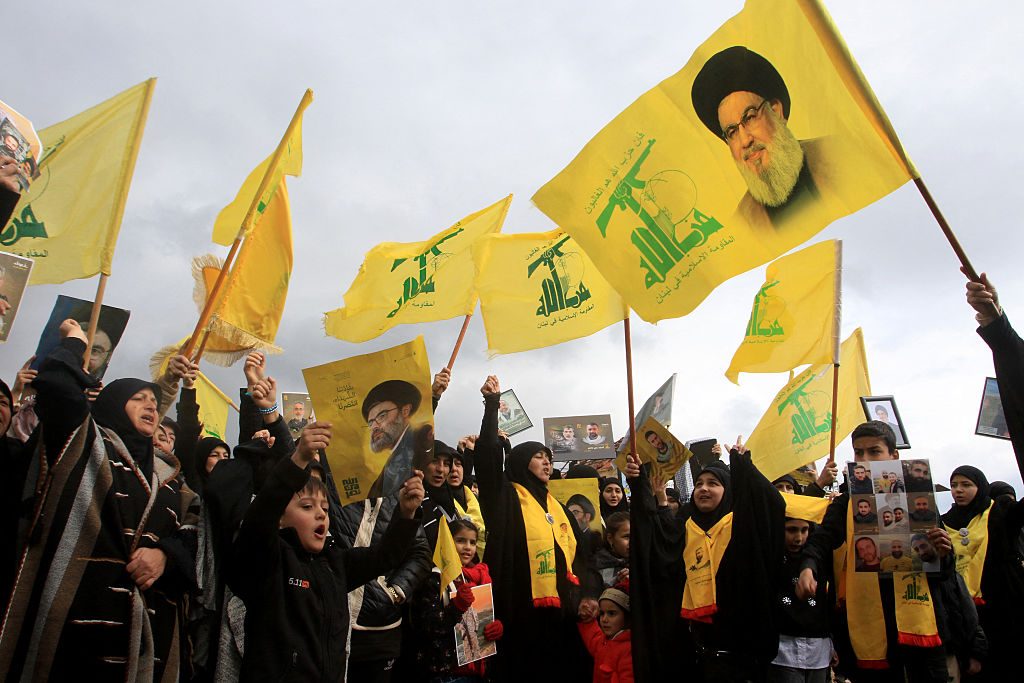Two years ago, even mentioning the prospect of Hezbollah’s disarmament in Lebanon was enough to elicit outrage and accusations of an attempt to foment sectarian strife. But in today’s Middle East the unthinkable has become the stuff of daily news headlines, and now it is Hezbollah itself that is weighing the prospect of downgrading its arsenal.
In the wake of its war with Israel, the removal of its ally Bashar al-Assad in Syria, and Israel’s war with Iran, Hezbollah has initiated a “strategic review” in which it is reevaluating its hierarchy structure, its political role in Lebanon, and even the size of its weapons stockpile. Although the group claims that total disarmament is not on the cards, it is considering giving up its deadliest weapons, including missiles and drones, in exchange for Israel’s withdrawal from the Lebanese border regions it still occupies and an end to its continued attacks on Hezbollah throughout the country.
As boundary-breaking as this move may be, it was also only a matter of time. The ground in Lebanon has shifted dramatically beneath Hezbollah’s feet over the last six months, especially with the rise of Joseph Aoun to the presidency and Nawaf Salam to the role of prime minister, with both men opposing the group. Calls from Lebanese public figures for Hezbollah to lay down its arms are now far from taboo. Indeed, they are arguably becoming commonplace, and disarmament is increasingly viewed by the country’s politicos as a key part of getting Lebanon out of the multi-pronged crisis it now faces after years of financial chaos and the largest war it has seen in nearly two decades.
This is far from the end of Hezbollah. But due to a combination of sheer necessity and the cold realities of a new Middle Eastern order, the move is understandable. Israel will continue to be its rhetorical rival; but practically speaking, its focus will turn elsewhere. It will concentrate on serving its Shi’a base and navigating a shifting domestic political landscape in which its weapons are no longer seen as an insurance policy against Israel, but instead as a target on Lebanon’s back. In doing so, it will be accelerating a transformation which many groups across Iran’s proxy network in Iraq, Gaza, and beyond are likely to mimic: safeguarding the influence of political Shiism in the region not expressly through militarism, but through localized soft power and socio-economic influence over individual Shi’a communities.
As it stands, Lebanese Shi’a are caught in a bind: they remain dependent on Hezbollah and its allies for political and economic support, but the group continues to have limited means to assist them. In short, the conflicts with Israel since 2024 have left Iran and its proxies exposed, not just militarily but financially. Lebanon’s task is truly gargantuan; according to the World Bank, Israeli strikes last year have resulted in a total of $11 billion in reconstruction needs, with around 163,000 housing units damaged or destroyed, mostly in the Shi’a-majority south and east of the country. Yet unlike in 2006, after Israel’s previous war with Hezbollah, international donors are hardly keen to give Lebanon a helping hand this time around due to the country’s deepening economic turmoil and a political elite unable — or unwilling — to do anything about it. Of course, the US has also refused to help with reconstruction until Hezbollah disarms.
Within such an environment, if Hezbollah were to refuse to budge on its weapons, it would expose itself not only to the ire of non-Shi’a Lebanese, but potentially to political repercussions as well. And if it hopes to retain its reach even among Lebanese Shi’a, opening the door for reconstruction is a must, as is channeling its now-limited resources to supporting their communities, which have borne the brunt of the violence from which Hezbollah promised to protect them.
This emerging realignment is hardly the magic pill that will fix Lebanon’s myriad problems. But it may be the first step toward creating a more dynamic political landscape in which power is dispensed through institutions, rather than through force. Optimism in modern Lebanon is often tantamount to delusion, and here too, even if one obstacle is cleared, others will appear on the horizon. But a voluntary reduction in Hezbollah’s weapons was once truly the stuff of fantasy and the fact it is finally happening is something Lebanese of all denominations should celebrate.











Join the discussion
Join like minded readers that support our journalism by becoming a paid subscriber
To join the discussion in the comments, become a paid subscriber.
Join like minded readers that support our journalism, read unlimited articles and enjoy other subscriber-only benefits.
Subscribe